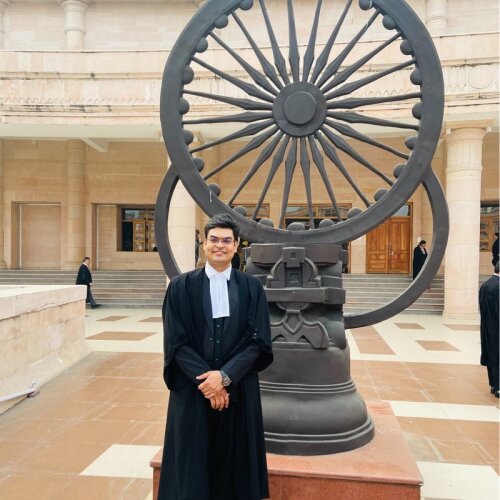Best Toxic Mold Lawyers in Lucknow
Share your needs with us, get contacted by law firms.
Free. Takes 2 min.
List of the best lawyers in Lucknow, India
About Toxic Mold Law in Lucknow, India:
Toxic mold refers to certain types of mold that produce toxins known to be hazardous to human health. In Lucknow, India, there is no specific law that deals exclusively with toxic mold. However, issues related to toxic mold generally fall under personal injury law, tenant rights, and property damage in broader Indian law. Victims of toxic mold exposure can pursue legal options under these areas when adverse health or property issues arise due to negligence.
Why You May Need a Lawyer:
You may require legal assistance in cases where you have been exposed to toxic mold within your own home or place of work due to neglect or inattention from property owners or employers. You can also seek help if your attempts to rectify the situation have not received appropriate response or remedy. Legal advice can also be helpful in terms of understanding your rights as a tenant or property owner, assessing damages for compensation, and in navigating complex laws and regulations related to toxic mold.
Local Laws Overview:
While there are no specific mold laws in Lucknow or India, the Indian Penal Code (IPC), 1860, Consumer Protection Act, 2019 and Public Health Act provide some recourse. Negligence leading to loss or harm is covered in the IPC. If goods or services have defects, including the presence of mold, you can file a case under the Consumer Protection Act. Public Health Act can also be invoked for cleanliness and health-related issues.
Frequently Asked Questions:
1. Can I sue my landlord in Lucknow for toxic mold exposure?
In cases where a landlord has been negligent to rectify the problem despite being informed, you may have a case. Each situation is unique and requires consultation with a legal advisor.
2. What damages can I claim for toxic mold exposure?
You can typically claim for medical expenses, loss of income, property damage and in severe cases, emotional distress.
3. What steps should I take if I discover toxic mold in my home?
Firstly, document the situation thoroughly, notify your landlord or property manager, seek medical help if required, and consult a lawyer to understand your legal options.
4. Can I withhold rent if my landlord fails to address mold issues?
While laws vary, it is advisable to consult with a lawyer or a tenant’s rights organization before withholding rent.
5. What should I do if I am a landlord and a tenant brings a toxic mold issue to my attention?
It is advisable to rectify the issue promptly to avoid any legal complications. You may want to consult with a lawyer to understand your responsibilities and potential liabilities.
Additional Resources:
For additional information on mold or related legal issues, you may contact the following:
- Uttar Pradesh State Consumer Disputes Redressal Commission - for lodging complaints related to defective goods or services.
- The Public Health and Family Welfare Department, Uttar Pradesh - for health-related issues.
- Indian Legal Services Authority - for free legal advice.
Next Steps:
If you need legal assistance, start by documenting all relevant details related to your toxic mold exposure. Next, contact a local lawyer specializing in personal injury or property law. Additionally, reach out to the local health department or the Indian Legal Services Authority for necessary health or legal support. Remember, each case is different and professional consultation is important to adequately address your specific circumstances.
Lawzana helps you find the best lawyers and law firms in Lucknow through a curated and pre-screened list of qualified legal professionals. Our platform offers rankings and detailed profiles of attorneys and law firms, allowing you to compare based on practice areas, including Toxic Mold, experience, and client feedback.
Each profile includes a description of the firm's areas of practice, client reviews, team members and partners, year of establishment, spoken languages, office locations, contact information, social media presence, and any published articles or resources. Most firms on our platform speak English and are experienced in both local and international legal matters.
Get a quote from top-rated law firms in Lucknow, India — quickly, securely, and without unnecessary hassle.
Disclaimer:
The information provided on this page is for general informational purposes only and does not constitute legal advice. While we strive to ensure the accuracy and relevance of the content, legal information may change over time, and interpretations of the law can vary. You should always consult with a qualified legal professional for advice specific to your situation.
We disclaim all liability for actions taken or not taken based on the content of this page. If you believe any information is incorrect or outdated, please contact us, and we will review and update it where appropriate.









